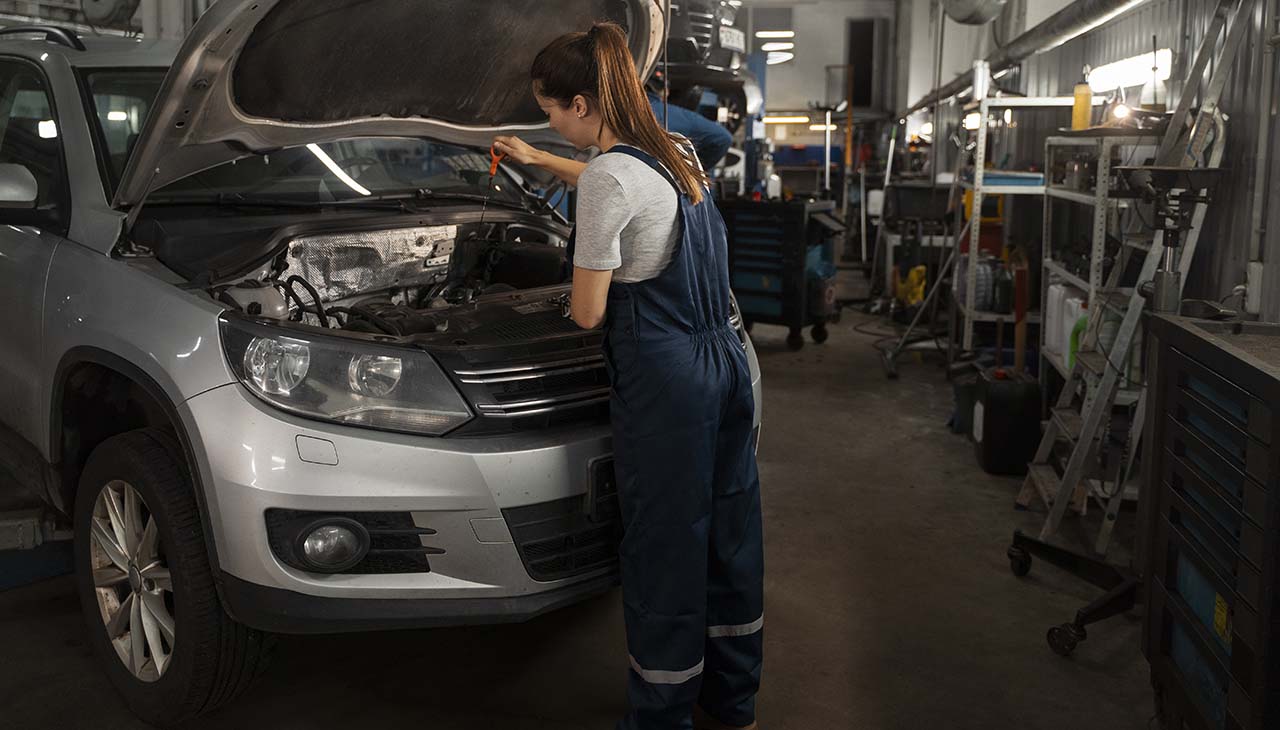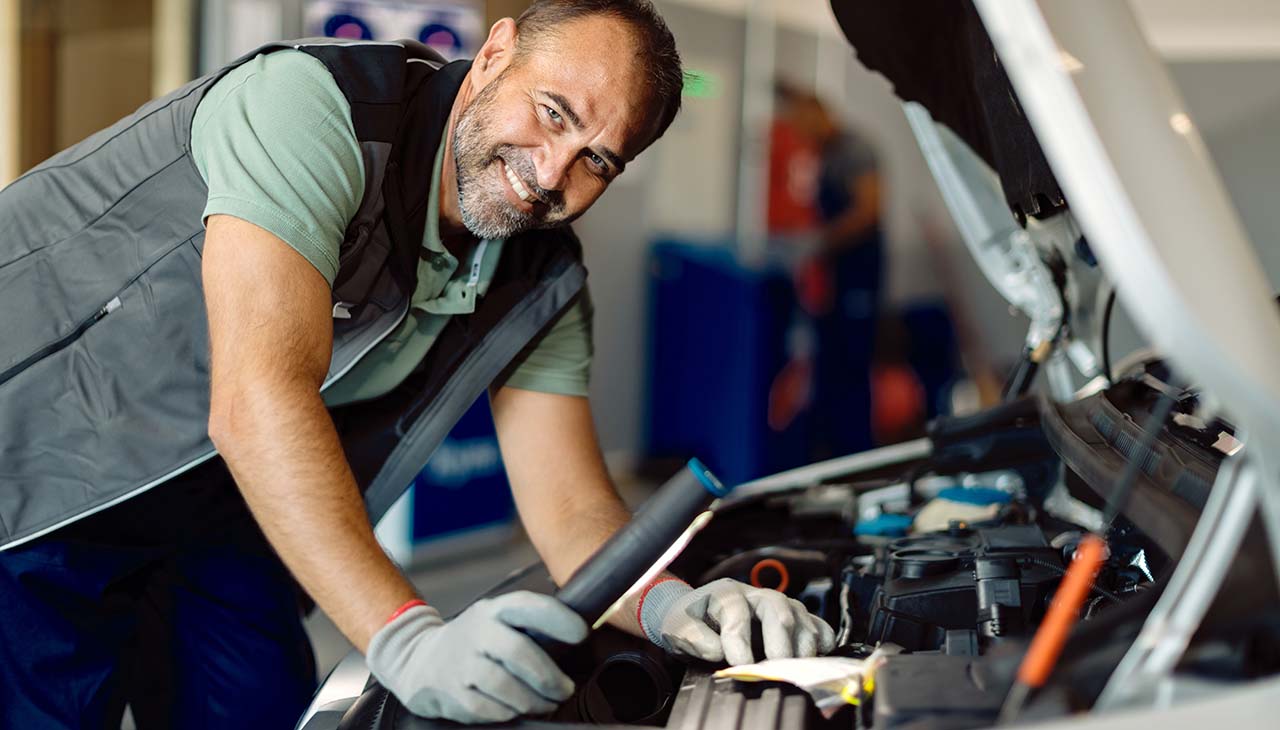Cars, as complex machines, are susceptible to a variety of problems that can affect their performance, safety, and longevity. Recognizing and addressing these common car problems not only ensures the vehicle runs smoothly but also can save you time and money in the long run. This document aims to guide car owners through identifying symptoms of common issues, understanding their potential causes, and taking appropriate actions to resolve them. Whether it’s irregular noises, engine performance issues, or electrical malfunctions, having the knowledge to tackle such problems can significantly enhance your car ownership experience.
Common Car Problems
Engine Issues
- Check Engine Light: The illumination of the check engine light is a clear signal that your vehicle’s engine might be facing issues. This could be due to a variety of reasons ranging from a simple faulty gas cap to more severe problems like a malfunctioning catalytic converter.
- Strange Noises: Unusual sounds such as knocking, hissing, or popping coming from the engine compartment can indicate problems with your vehicle’s engine. These noises may suggest issues with the combustion flow, loose belts, or even something more serious requiring immediate attention.
Battery Problems
- Failure to Start: If your car fails to start, it’s often a sign that the battery could be dead or there is a connection issue. This could stem from leaving headlights on, which drains the battery, or corrosion on the connections.
- Dimming Headlights: When your car’s headlights start to dim, especially during startup, or if the electrical components start to operate slower, it’s usually an indication that the battery is losing its charge or is on the verge of failing.
Brake Troubles
- Squeaking or Grinding Noises: These sounds from the brakes are often a warning that the brake pads have worn down and need replacement. Ignoring these signs can lead to more significant and costly damages.
- Vibrations: Feeling a vibration or pulsating sensation through the brake pedal or steering wheel when applying brakes can indicate warped rotors or issues with the brake pads.
Transmission Difficulties
- Delayed Shifting: If there’s a noticeable delay in gear shifting, particularly from a cold start, it might suggest problems with the transmission fluid or internal components within the transmission system.
- Leaking Fluid: Spotting a pool of red fluid under your car could indicate a transmission fluid leak, which is vital for lubricating the moving parts inside your vehicle’s transmission. Ignoring this could result in severe transmission damage.
How to Address These Problems
Engine Issues
- Visit a mechanic for diagnostic testing to accurately identify the cause of the check engine light or strange noises. Diagnostic tools can pinpoint specific issues which can then be addressed appropriately.
- Regular maintenance checks can prevent many engine issues before they start. This includes oil changes, air filter replacements, and spark plug inspections to ensure your engine runs smoothly and efficiently.
Battery Problems
- Test battery health regularly to ensure it maintains a charge and operates effectively. Most auto parts stores offer this service for free and it can help you anticipate when a replacement may be needed.
- Replace if necessary. If your battery is no longer holding a charge or is showing signs of wear, replacing it before it fails completely can save you from being stranded.
Brake Troubles
- Inspect brake pads and rotors for wear and tear if you notice any squeaking, grinding noises, or vibrations. These components are critical for your safety and should be in top condition.
- Replace worn-out components as soon as possible. Delaying brake repairs can lead to more severe damage and potentially dangerous driving conditions.
Transmission Difficulties
- Check transmission fluid levels and quality regularly. Low or dirty fluid can lead to delayed shifting and can cause damage to internal components.
- Consult a professional for repairs if you notice delayed shifting or a transmission fluid leak. Transmission systems are complex and require specialized knowledge for proper maintenance and repair.
Preventive Measures
Preventive maintenance is key to avoiding the onset of many common car problems. By adhering to a regular servicing schedule, you can ensure that your vehicle remains in optimal operating condition and potentially save on costly repairs down the line. Here are some essential maintenance tips:
- Adhere to the Manufacturer’s Servicing Schedule: Your car’s owner’s manual provides a schedule for regular maintenance, tailored to the specific needs of your vehicle model. This often includes oil changes, brake inspections, and tire rotations.
- Regular Oil Changes: Changing your car’s oil and oil filter is crucial for maintaining engine health. Old, dirty oil can harm engine components over time, leading to overheating and decreased efficiency.
- Check Fluid Levels Frequently: Besides engine oil, other fluids such as brake fluid, transmission fluid, coolant, and power steering fluid should be checked regularly and topped up or replaced as required.
- Monitor Tire Pressure and Tread Depth: Keeping tires inflated to the correct pressure can improve fuel efficiency and handling. Regularly check your tires for wear and tear and align or rotate them as needed to ensure even tread wear.
- Replace Air Filters: A clean air filter improves engine performance and efficiency by allowing a smooth flow of air into the engine. Check and replace your vehicle’s air filters according to the guidelines in your owner’s manual.
- Inspect the Battery: Check your car’s battery for signs of corrosion on the terminals and ensure it is securely mounted. Test the battery’s charge level, especially before winter, as cold weather can reduce battery performance.
- Listen for Strange Noises: Pay attention to any unusual sounds from your car as these can be early indicators of a variety of issues, from worn-out brake pads to engine trouble.
These regular maintenance tasks can drastically reduce the likelihood of experiencing common car problems and help ensure a smoother, safer driving experience.


